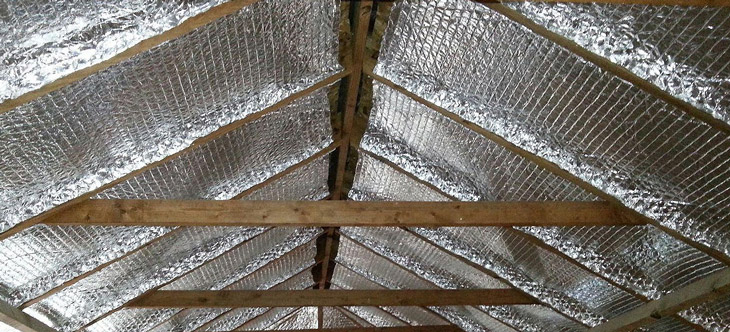Different types of insulation protect against different kinds of heat. Radiant barrier insulation deflects radiant heat, which can pass through other types of insulation, to increase your home’s energy efficiency further.
Radiant barriers are installed in homes, usually in attics, primarily to reduce summer heat gain and reduce cooling costs.
The barriers consist of a highly reflective material that reflects radiant heat rather than absorbing it. They don’t, however, reduce heat conduction like thermal insulation materials.
Which Is Better: Radiant Barrier or Insulation?
You don’t necessarily have to decide between one or the other; each has its own individual use cases.
Insulation simply slows down or reduces the amount of heat loss or gain that occurs in your home. The higher its R-value, the more effective the insulation. Think of it like adding another layer of clothing to yourself in the wintertime.
Radiant barrier, on the other hand, actually deflects the heat back to where it came from, resulting in zero heat transfer. You can think of this as picking up and moving your house entirely out of the sun’s reach.
If you absolutely had to pick between the two, radiant barrier would be the way to go. It costs more to install but will save you more energy expenses than insulation.
Do Radiant Barriers Help in Winter?
Yes! While radiant barriers work to keep the heat outside your home in the summer, they work to keep the heat inside your home in the winter.
Most radiant barrier insulations offer year-round comfort and do not require any sort of adjustment when the seasons change.
Get a Free Estimate + 5% Off With Bulldog Insulation!
Ready to have your Columbus insulation needs met? Contact us for a free estimate + 5% off! We’ll come out and make sure the job gets the right way, the first time.

